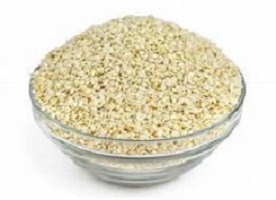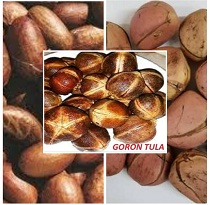Sesame Seeds Benefits and Side Effects for Male Fertility
Sesame seeds are one of the oldest foods on the planet. The plants are the oldest recognized plant species that are cultivated for their seeds and oils rather than their leaves, fruits, or vegetables.

The Sesame seeds (Sesamum indicum) have been used for thousands of years to spice foods, provide essential fats, and improve skin health in eastern, Mediterranean, and African cultures.
Please Read >>>15 Health Benefits of Goron Tula Fertility Fruit
Sesame has the highest oil content of any seed and a rich, nutty taste, which is why sesame oil, tahini, and the seeds themselves are used in cuisines all over the world.
Table of Contents
Sesame Seeds: What Are They?
Although sesame seeds are a popular ingredient in almost anything, many people wonder:
What is the origin of sesame seeds?
Sesame seeds come from the genus Sesamum, which is a flowering sesame plant. When sesame seed pods reach full maturity, they burst open, releasing the sesame seed plant’s seeds, which contain valuable oils.
How many sesame seeds can I consume on a daily basis?
Per day, consume 1 tablespoon of raw or toasted sesame seeds. b. You may also add sesame seeds to salads for more nutrition.
Sesame Seeds Health Benefits
- Rich in Essential Nutrients
- Lower Cholesterol Levels
- Reduce Blood Pressure
- Balance Hormone Levels
- Benefits for skin, hair, for male, for ovulation, and male fertility
- Fight Cancer Cell Growth
- Boost Fat-Burning
- Enhance Nutrient Absorption
Varieties
Sesame seeds come in white and black varieties. White sesame seeds have a delicate taste and can be used in any dish that calls for sesame seeds.
The black seeds have a stronger taste and aroma and should be used in conjunction with other bold ingredients to avoid overpowering the dish.
Taste
Toasting sesame seeds enhances their nutty, slightly sweet flavor and aroma. The bitterness of the black seeds is said to be higher.
Cooking
To bring out the nuttiness of sesame seeds, toast them. Dry toasting on the stovetop and baking in the oven are the two options. The stovetop method is more effective.
Recipes
Toasted sesame seeds can be sprinkled on top of stir-fries, salads, and other dishes as a condiment.
Tahini paste is made from untoasted seeds and is used in a variety of Middle Eastern dishes.
In Nigeria, where can I buy it?
Sesame seeds near you can be found packed in grocery stores’ spice sections, in addition to in bulk at health food stores and Middle Eastern markets. The prices as of 2021 are still reasonable.
Storage
Sesame seeds should be held in an airtight jar when not in use. Seeds can be stored in a cold, dry position for up to three months if not refrigerated.
The seeds can be stored in the refrigerator for up to six months, or frozen for up to a year.
The Sesame oil, on the other hand, is extremely stable and can last for years without going rancid, even in high temperatures.
Sesame Seed Side Effects and Allergies
Sesame seeds, like anything else, should be eaten in moderation.
Consumption will irritate the bowels and colon, which is the exact opposite of what sesame seeds can do for the human body.
They may also turn up in drug tests due to the presence of THC. However, this is also contingent on the quantity consumed.
Both of these items can be avoided with moderate intake.


